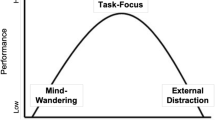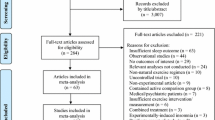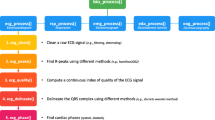Abstract
Although sleep deprivation causes deficits in the performance of several sensorimotor tasks, its effects on object manipulation are underexplored. To investigate the possible effects of sleep deprivation on the control of object manipulation we assessed the relationship between the force components acting on the digits-object interaction (i.e. grip force [GF] and load force [LF]) during two simple manipulation tasks. Sixteen young adults performed two manipulation tasks five times along one night of sleep deprivation, at 23:00, 01:00, 03:00, 05:00, and 07:00 h. In the first task (i.e. holding), participants were asked to hold an instrumented object, as still as possible, during 12 s. In the second task (i.e. shaking), they were instructed to continuously oscillate the object upward and downward at two frequencies, 0.8 Hz and 1.2 Hz. The results revealed that individuals who remained sleep deprived decreased linearly the amount of GF exerted while holding the object still as the night progressed. Also, results revealed that during the shaking task the GF-LF coordination and GF control were negatively affected at 03:00. These results indicate that during the holding task GF control is strongly affected by time awake and that during the shaking, a dynamic task, circadian variations play a major role. These changes could be detrimental to work-related manipulation tasks.
Similar content being viewed by others
References
Killgore WD. Effects of sleep deprivation on cognition. Prog. Brain Res. 2010; 185: 105–29.
Chee MW, Tan JC, Parimal S, Zagorodnov V. Sleep deprivation and its effects on object-selective attention. Neuroimage 2010; 49 (2): 1903–10.
Aguiar SA, Barela JA. Sleep deprivation affects sensori-motor coupling in postural control of young adults. Neurosci. Lett. 2014; 574: 47–52.
Jasper I, Haussler A, Marquardt C, Hermsdorfer J. Circadian rhythm in handwriting. J. Sleep Res. 2009; 18 (2): 264–71.
Patel M, Gomez S, Berg S et al. Effects of 24-h and 36-h sleep deprivation on human postural control and adaptation. Exp. Brain Res. 2008; 185 (2): 165–73.
Fabbri M, Martoni M, Esposito MJ, Brighetti G, Natale V. Postural control after a night without sleep. Neuropsychologia 2006; 44 (12): 2520–5.
Thomas M, Sing H, Belenky G et al. Neural basis of alertness and cognitive performance impairments during sleepiness. I. Effects of 24 h of sleep deprivation on waking human regional brain activity. J. Sleep Res. 2000; 9 (4): 335–52.
Wu JC, Gillin JC, Buchsbaum MS et al. The effect of sleep deprivation on cerebral glucose metabolic rate in normal humans assessed with positron emission tomography. Sleep 1991; 14 (2): 155–62.
Inoue Y, Komada Y. Sleep loss, sleep disorders and driving accidents. Sleep Biol. Rhythms 2014; 12: 96–105.
Takahashi M. Assisting shift workers through sleep and circadian research. Sleep Biol. Rhythms 2014; 12: 85–95.
Borbely AA. A two process model of sleep regulation. Hum. Neurobiol. 1982; 1 (3): 195–204.
Bougard C, Lepelley MC, Davenne D. The influences of time-of-day and sleep deprivation on postural control. Exp. Brain Res. 2011; 209 (1): 109–15.
Harrison Y, Jones K, Waterhouse J. The influence of time awake and circadian rhythm upon performance on a frontal lobe task. Neuropsychologia 2007; 45 (8): 1966–72.
Westling G, Johansson RS. Factors influencing the force control during precision grip. Exp. Brain Res. 1984; 53 (2): 277–84.
Jaric S, Knight CA, Collins JJ, Marwaha R. Evaluation of a method for bimanual testing coordination of hand grip and load forces under isometric conditions. J. Electromyogr. Kinesiol. 2005; 15 (6): 556–63.
Flanagan JR, Wing AM. The stability of precision grip forces during cyclic arm movements with a hand-held load. Exp. Brain Res. 1995; 105 (3): 455–64.
Blakemore SJ, Goodbody SJ, Wolpert DM. Predicting the consequencesofour own actions: the roleof sensorimotor context estimation. J. Neurosci. 1998; 18 (18): 7511–8.
Ehrsson HH, Fagergren A, Johansson RS, Forssberg H. Evidence for the involvement of the posterior parietal cortex in coordination of fingertip forces for grasp stability in manipulation. J. Neurophysiol. 2003; 90 (5): 2978–86.
Ehrsson HH, Fagergren A, Ehrsson GO, Forssberg H. Holding an object: neural activity associated with fingertip force adjustments to external perturbations. J. Neurophysiol. 2007; 97 (2): 1342–52.
Menz MM, Buchel C, Peters J. Sleep deprivation is associated with attenuated parametric valuation and control signals in the midbrain during value-based decision making. J. Neurosci. 2012; 32 (20): 6937–46.
Mu Q, Nahas Z, Johnson KA et al. Decreased cortical response to verbal working memory following sleep deprivation. Sleep 2005; 28 (1): 55–67.
Bertolazi AN, Fagondes SC, Hoff LS et al. Validation of the Brazilian Portuguese version of the Pittsburgh Sleep Quality Index. Sleep Med. Clin. 2011; 12 (1): 70–5.
Horne JA, Ostberg O. A self-assessment questionnaire to determine morningness-eveningness in human circadian rhythms. Int. J. Chronobiol. 1976; 4 (2): 97–110.
de Freitas PB, Lima KC. Grip force control during simple manipulation tasks in non-neuropathic diabetic individuals. Clin. Neurophysiol. 2013; 124 (9): 1904–10.
de Freitas PB, Krishnan V, Jaric S. Force coordination in object manipulation. J. Hum. Kinet. 2008; 20: 37–51.
Rost K, Nowak DA, Timmann D, Hermsdorfer J. Preserved and impaired aspects of predictive grip force control in cerebellar patients. Clin. Neurophysiol. 2005; 116 (6): 1405–14.
Jasper I, Hermsdorfer J. Time-of-day effects on force control during object manipulation. Eur. J. Appl. Physiol. 2007; 101 (4): 437–44.
Buysse DJ, Reynolds CF 3rd, Monk TH, Berman SR, Kupfer DJ. The Pittsburgh Sleep Quality Index: a new instrument for psychiatric practice and research. Psychiatry Res. 1989; 28 (2): 193–213.
Johansson RS, Westling G. Roles of glabrous skin receptors and sensorimotor memory in automatic control of precision grip when lifting rougher or more slippery objects. Exp. Brain Res. 1984; 56 (3): 550–64.
Johansson RS, Westling G. Programmed and triggered actions to rapid load changes during precision grip. Exp. Brain Res. 1988; 71 (1): 72–86.
Kawato M, Kuroda T, Imamizu H, Nakano E, Miyauchi S, Yoshioka T. Internal forward models in the cerebellum: fMRI study on grip force and load force coupling. Prog. Brain Res. 2003; 142: 171–88.
Flanagan JR, Wing AM. Modulation of grip force with load force during point-to-point arm movements. Exp. Brain Res. 1993; 95 (1): 131–43.
Lang N, Rothkegel H, Reiber H et al. Circadian modulation of GABA-mediated cortical inhibition. Cereb. Cortex 2011; 21 (10): 2299–306.
Jasper I, Roenneberg T, Haussler A, Zierdt A, Marquardt C, Hermsdorfer J. Circadian rhythm in force tracking and in dual task costs. Chronobiol. Int. 2010; 27 (3): 653–73.
Monk TH, Buysse DJ, Reynolds CF 3rd et al. Circadian rhythms in human performance and mood under constant conditions. J. Sleep Res. 1997; 6 (1): 9–18.
Liu Y, Higuchi S, Motohashi Y. Changes in postural sway during a period of sustained wakefulness in male adults. Occup. Med. (Lond) 2001; 51 (8): 490–5.
Manly T, Lewis GH, Robertson IH, Watson PC, Datta A. Coffee in the cornflakes: time-of-day as a modulator of executive response control. Neuropsychologia 2002; 40 (1): 1–6.
Landis CA, Savage MV, Lentz MJ, Brengelmann GL. Sleep deprivation alters body temperature dynamics to mild cooling and heating not sweating threshold in women. Sleep 1998; 21 (1): 101–8.
Author information
Authors and Affiliations
Corresponding author
Rights and permissions
About this article
Cite this article
Pedão, S.T., Aguiar, S.A., Cunha, B.P. et al. Grip and load force control and coordination in object manipulation during a night of sleep deprivation. Sleep Biol. Rhythms 13, 163–171 (2015). https://doi.org/10.1111/sbr.12102
Accepted:
Published:
Issue Date:
DOI: https://doi.org/10.1111/sbr.12102




